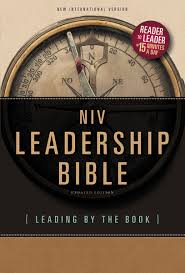Click here to return to Blog Post Intro
Step One: Define & Prioritize Your Core Values

The first step in effective leadership is defining Core Values. God did this with his people when He issued the Ten Commandments—which begin with how we relate to God and end with our relationship with others. Godly leaders seek to live by God’s eternal values of truth, beauty, goodness, love and justice, as described throughout the Bible.
I mentioned the Fellowship of Christian Athletes (FCA) earlier. They train their leaders in establishing personal Core Values that are consistent with their organization values. FCA provides the following guidance and criteria to establishing a Core Value:
- The Value is constant over time
- The Value can be expressed clearly
- The Value is congruent with your other values
- The Value engenders passion in you and others
- The Value is shared with others
- The Value is recognized by others in how you behave
Once you’ve defined your Core Values, you should prioritize them. James MacGregor Burns in his Pulitzer Prize-winning book Leadership provides a tangible way to measure the importance of a particular value. He shows how to break “value” into five levels of intensity: is it a want, a need, a hope, an aspiration, or an expectation?
Step Two: Let Your Core Values Drive Your Behavior

It is one thing to know the right things to do and another to consistently do them, as demonstrated by the leaders at Enron.
Core Values direct a leader’s behavior. They are both motivational–giving reasons why we do things–and restrictive–giving reasons why we don’t do other things. They help us set boundaries (for more on boundaries, check out this blog post).
In the Old Testament, King David’s deepest value was to honor and please God. That’s why he became known as a “man after God’s own heart.” He uses Psalm 15 to describe values-driven behavior:
- Integrity: David points out that the person who enjoys the presence of God and lives a blameless life “speaks the truth from their heart” (verse 2).
- Kindness: People who value kindness do “no wrong to a neighbor” (verse 3).
- Honesty: Honest people “keep an oath even when it hurts” (verse 4).
- Justice: People who value justice do “not accept a bribe against the innocent” (verse 5).
Leaders who are driven by godly values like these reap a great benefit from the Lord. David says they “will never be shaken” (verse 5). Regardless of what may happen around them, they can live with full confidence that the right principles have shaped their values and guided their decisions.
Step Three: Measure the Results
What is the best way to measure progress? Jesus said, “Do not store up for yourselves treasures on earth… But store up for yourselves treasures in heaven” (Matthew 6:19-20). Your heart (focus, attention, resources) will center on your treasure (what you ultimately value). Then, Jesus taught his disciples that the core value…the driving value…the eternal value is this: “Does what I’m doing please God?” Every other value is secondary. When that value is in place, all others line up.
In fact, the best advice on Core Values is summed up in what Jesus called the first and greatest commandment: “Love the Lord your God with all your heart and with all your soul and with all your mind” (Matthew 22:37). Until you love God properly (as defined by Jesus), the rest of what we’ve learned about values will just be an academic exercise.

What values drive your behavior? What values would you like to drive your behavior? If you’ve answered differently to those two questions, make it your goal today to completely integrate the values you desire and use them as guiding forces for both your personal and professional life.
Then, you’ll be shooting for the stars with Out of This World Leadership Values!
